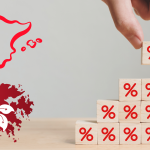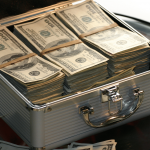Hong Kong 2015-16 Budget
On the 25 February 2015, which also happened to be the Chinese ‘common birthday’, the Financial Secretary, Mr. John Tsang, delivered his eighth budget speech for the fiscal year 2015-16 with the theme ‘Diversification of Development and Augmentation of Competitiveness’.
Mr. Tsang started his speech off by highlighting several important events from the past year, such as the launch of quantitative easing by Europe and Japan and the 79-days Occupy Central movement in Hong Kong, stating that these events will have an impact on the lives of many Hong Kong citizens and the city as a whole. The changing environment will therefore bring new challenges ahead for the people of Hong Kong.
Major Relief Measures
With the forecast of having a surplus of HK$63.8 billion for the fiscal year 2014-15 and fiscal reserves reaching at HK$819.5 billion by 31 March 2015, Mr. Tsang, following the same practice as in prior years, proposed a package for the total amount of HK$34 billion, relieving the financial burden of the public and boosting the economy. The ‘sweeteners’ offered to the entrepreneurs, middle-class and upper-class include the following:
- Reduction of the profits tax for the year 2014-15 by 75 per cent, subject to a ceiling of HK$20,000 per case;
- Reduction of the salaries tax and tax under personal assessment for the year 2014-15 by 75 per cent, subject to a ceiling of HK$20,000 per case;
- Increasing the basic and additional child allowances from HK$70,000 to HK$100,000 for each child from the year 2015-16 onwards;
- Waiving the housing rates for the first two quarters of the year 2015-16, subject to a ceiling of HK$2,500 per quarter for each ratable property;
- Waiving the license fees for travel agents, hotels, guesthouses, restaurants, hawkers and operators with restricted food permits for six months; and
- waiving the vehicle examination fees for vehicle license renewal of taxis, light buses, buses, goods vehicles, trailers and special purpose vehicles once within a year.
Compared to the Hong Kong 2014-15 Budget, it can be said that the relief measures proposed in the 2015-16 Budget are more generous. Specifically, the reduction of salaries tax, tax under personal assessment and profits tax for the year 2013-14 as proposed in the 2014-15 Budget, was subject to a maximum ceiling of HK$10,000 per case.
In addition, although within the 2014-15 Budget there was an increment of the dependent parent and grandparent allowance, restricted to HK$1,000/HK$2,000, there was no increment of the child allowance at all. Moreover, the waiver of rates was subject to only a maximum of HK$1,500 for the first two quarters of the year 2014-15. As for the waiver of the license fees and vehicle examination fees, these have been introduced in the 2015-16 Budget, but not in the 2014-15 Budget, as a support measure to those industries affected by the Occupy Central protests.
Tax Related Issues
The 2015-16 Budget also contains some measurements for the purposes of fighting against tax evasion, diversification of the economic development and stabilisation of the Government Revenues, such as:
- Exchange of information
Hong Kong will step up to combat cross-border tax evasion according to the global standards. In particular, it has been pledged that the financial institutions would be required to report specified financial account information to the Hong Kong Inland Revenue Department on a regular basis for the purpose of exchanging information with other tax jurisdictions by the end of 2018. The Government will consult the industry in the second quarter of 2015 and introduce the relevant amendment bill in 2016.
- Tax deduction on capital expenditure on purchase of IP rights
In order to develop Hong Kong as a premier intellectual property (‘IP’) trading hub providing high value-added IP services in the region, Mr. Tsang is considering to extend the scope of tax deduction in respect of the capital expenditures on the purchase of IP rights to cover more types of IP rights as appropriate.
Pursuant to the current Hong Kong tax law, the IP, on which the capital expenditure on the purchase can be claimed as tax deductible, is limited to patent rights, rights to know-how, copyrights, registered designs and registered trademarks.
- Profits tax reduction for corporate treasury centres
With a view to promoting Hong Kong as a corporate treasury centre, providing treasury services to group companies, the government will be amending the Inland Revenue Ordinance to (i) allow the corporate treasury centres to deduct their interest expenses under profits tax; and (ii) reduce the profits tax for specified treasury activities by 50 per cent, provided that certain conditions are satisfied. The relevant Bill will be introduced in the 2015-16 legislative session.
- Profits tax exemption for private equity funds
It is planned to table a Bill in the Legislative Council to allow the offshore private equity funds to enjoy profits tax exemption, following the proposal made in the 2013-14 Budget to extend the scope of profits tax exemption for offshore funds to include transactions in private companies which are incorporated or registered outside Hong Kong and do not hold any Hong Kong properties nor carry out any business in Hong Kong.
- Broadening the tax base
The Hong Kong government may explore again the feasibility of broadening the tax base for the purposes of (i) stabilising the Government revenue resulting into less volatility to the economic environment; and (ii) creating room for concessions on direct tax, following that the community generally did not support the Goods and Services Tax after the extensive consultation performed by the Government in 2006.
Support for Small & Medium Enterprises
Hong Kong has about 320,000 small and medium enterprises (‘SMEs’) which account for 98 per cent of the total local enterprises. According the 2015-16 Budget, the Government will continue to offer support to SMEs including the following:
- Extension of the application period for the special concessionary measures under the SME Financing Guarantee Scheme to 29 February 2016;
- Injection of HK$1.5 billion into the SME Export Marketing and Development Funds;
- Increasing the maximum amount of funding support for each project under the SME Development Fund from HK$2 million to HK$5 million; and
- Expansion of the scope of the SME Export Marketing Fund.






